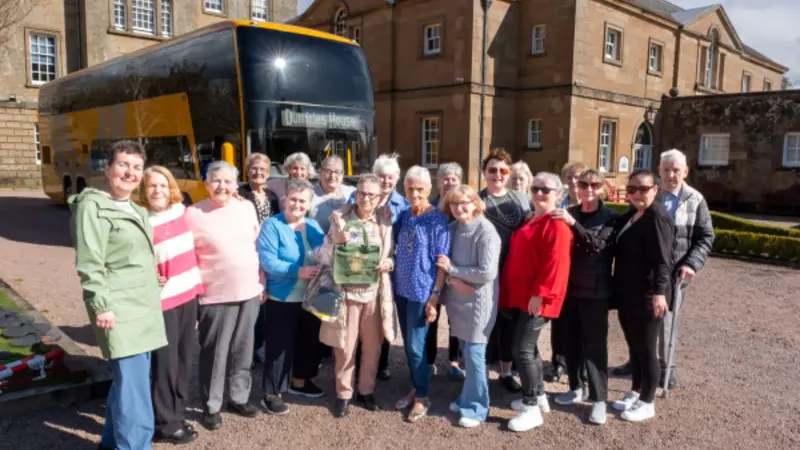Blog: IWD 2022 - Breaking the bias in the workplace
To mark International Women’s Day 2022, we’re looking at the barriers older women may face at work and how we can #BreakTheBias.
There are 3.5 million women over 50 in the workplace in the UK and a third of our workforce is already aged over 50, a figure that will only grow as the population continues to age, so it’s vital that we see a transformation of the workplace to be much more age and gender inclusive.
With years of experience and transferable skills, older working women have a huge contribution to make and must have access to comprehensive support throughout their careers, but their experience at work can be very different to that of older men and the double-edged sword of gendered ageism means that many valuable people can be left behind.
Pay and pension inequality
Although the gender pay gap is shrinking, the difference between what men and women get paid widens with age. Analysis from Rest Less, based on 2020 pay data from ONS, has shown that the gender pay gap between men and women working full time is at its widest for those over 50 with women over 50 earning £8,000 less than their male counterparts.
Historically, women have also been disadvantaged by the pension system. While women tend to live for longer than men, they are more likely to earn lower pay on average, work part-time, and to experience interrupted careers resulting in barriers to career progression and less opportunity to build up savings or pension pots.
Age Scotland's Planning For Your Future workshops enable employees over 50 to better prepare for later life and to feel more comfortable having honest and open discussions with their employers about retirement and may particularly benefit women affected by a pension deficit.
Health and Wellbeing
With more women working for longer, employers must rise to meet the health and wellbeing needs of older women in the workplace.
For example, until fairly recently menopause has been something of a taboo subject and rarely one discussed openly at work. However, given that over 50s make up over a third of the female workforce in Scotland and the average age at which a woman will reach menopause is 51, it is fundamentally important that managers build trust with their employees to normalise and remove stigma around conversations on menopause in the workplace.
Scotland is the first country in the UK to have a Women’s Health Plan, which outlines ambitious improvement and change in areas including menopause, heart health, menstrual health including endometriosis, and sexual health.
This plan includes a commitment to develop a menopause and menstrual health workplace policy and promote across the public, private and third sector.
Caring responsibilities
Anyone can have caring responsibilities at any stage of their life, but older women are more likely to care for family or loved ones, often caring for older and younger generations of their family simultaneously.
According to 2019 ONS figures, there are 1.25 million ‘sandwich’ carers in the UK, 68% of whom are women. Without flexible working arrangements and carer-friendly attitudes, many older women find it impossible to hold down a full time job at the same time as fulfilling their caring responsibilities and may be forced to leave work altogether or take a lower-paid part time job instead.
Age Scotland is committed to helping carers self-identify and take-up the forms of support available for them. The Carers (Scotland) Act 2016 gives carers the right to support from their council and support to help their health and wellbeing. Additionally, those who spend over 35 hours per week caring for a person in receipt of a qualifying disability benefit could be entitled to Carer's Allowance.
Find out more about support available for adult carers through our Check in, Cash out campaign.
How Age Scotland is promoting inclusivity in the workplace
An age-inclusive workplace is one where employees of all ages have an effective voice, feel respected, valued, and able to fulfil their aspirations and potential. Over the last 5 years, Age Scotland has worked with over 200 organisations and 11,000 employees to promote age-inclusive workplaces.
Age Scotland's Age Inclusive Matrix (AIM) is a fully-funded consultancy programme that supports organisations to be as age-inclusive as possible. It has been created over five years by pooling the experience of both our charity and our team of experienced HR professionals.
Age Scotland also aims to increase awareness around unconscious bias and its effects in order to help create a real motive for change. Our Unconscious Bias workshop uses digital media that has been specifically created to immerse participants into workplace situations. It allows them to experience their own personal bias as well as how it feels to be on the receiving end of other people’s biases. This in turn creates a greater awareness of the effect of unconscious bias and a motive for change.
The workshop is one of the first of its type that includes age-related biases, which are often missed, alongside other protected characteristics such as sex.
For more information on Age Scotland’s work to promote inclusivity in the workplace visit www.age.scot/age-inclusive-workplace


